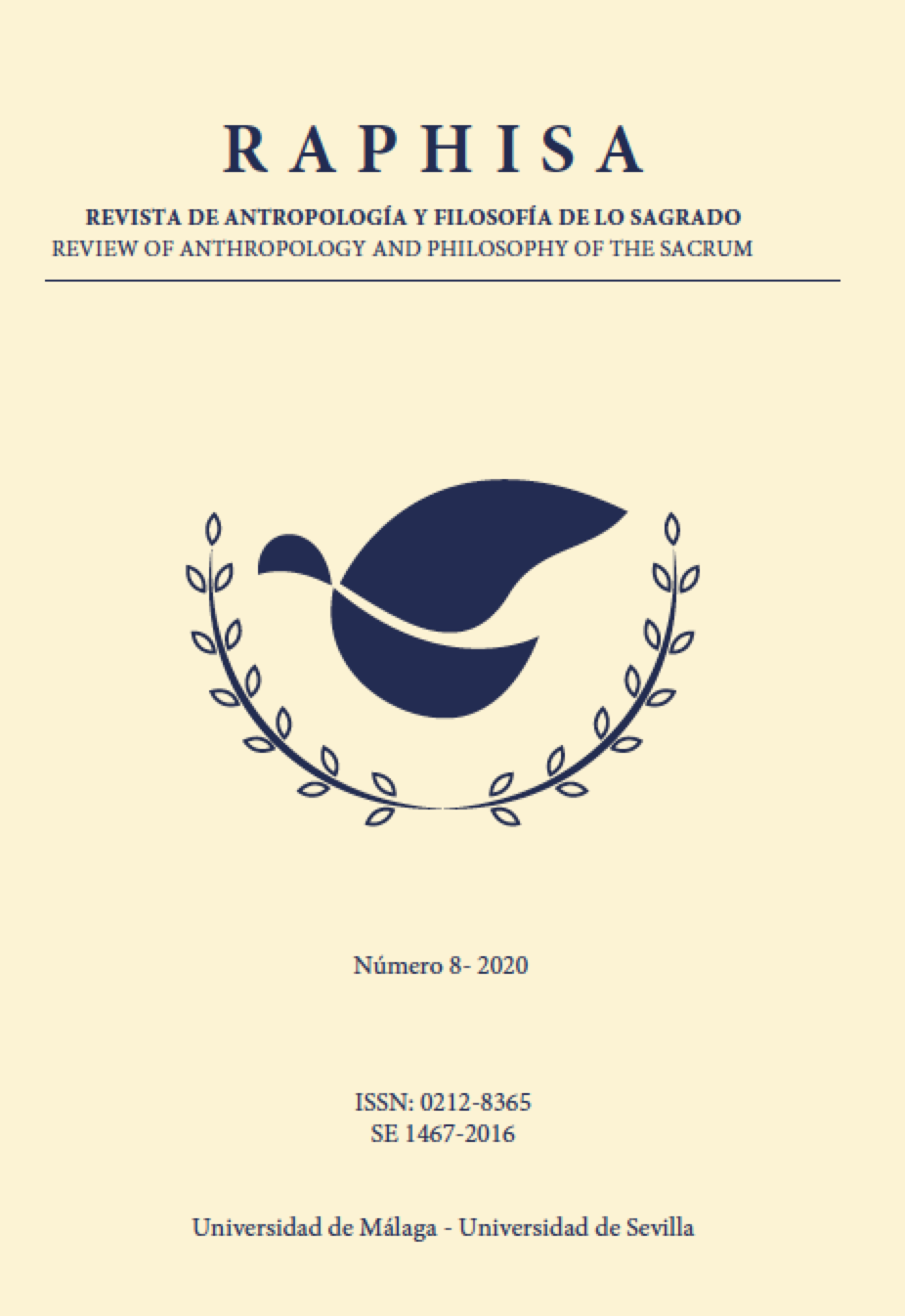When kings play dice
DOI:
https://doi.org/10.24310/Raphisa.2020.vi8.10793Keywords:
Epic, Self Control, Fate, FreedomAbstract
The conception of life as a divine game -lilah- is a relevant notion that crosses the
world of ancient Indian literature. The symbol of the dice is installed as an archetype of
cosmological, ritual, destiny, with a complex myriad of connotations. In this work we will
comment on two narratives of the epic cycle of the Mahâbhârata: the avatars of the kings
Nala and Yudhishthira. Both stories show a specular and comparative structure whose
function is to become another example of pedagogical literature, in form as well as
content.
Downloads
Metrics
References
Bowles A. “Dharma, disorder and the policies in Ancient India: the âppaddharmanparvan of the Mahâbhârta”. Netherlands: Brill, 2007.
Cattedra O. “Educación en la épica. Los discursos sapienciales del Mahâbhârata”, In Itinere, revista On Line, Univ. FASTA; vol 7, 2017, no.1 Mar del Plata
Diez del Corral Areta, E. “Sobre el modo, manera, suerte, forma y arte de conectar” en Res Diachronicae, Vol 9, 2001, pp. 33-50
Doniger O’Flaherty, W. The Origins of Evil in Hindu Mythology, California: Univ. of Berkeley, 1980.
Eliade M. Imágenes y símbolos, Madrid: Ed. Closas. 1979.
Gitomer D. “King Duryodhana: The Mahâbhârata discourse of sinning and virtue in epica and drama” en: Journal of the American Oriental Society, vol. 112, no 2, jun 1992, pp. 222-232
González Reimann L. The Mahâbhârata and the Yugas. New York: Peter Lang, 2002.
Hiltebeitel A. Rethinking the Mahâbhârata, Chicago: Univ. of Chicago, 2001.
Hiltebeitel, A. “On reading Fitzgerald’s Vyasa” , Journal of the American Oriental Society, vol. 125, no. 2 (apr-jun 2005) pp. 241-261, p. 242
HIltebeitel, A. The cult of Draupadî, vol. I y II, Chicago: Univ. of Chicago, 1988.
Lorenzen-Devalle , trad. “Nala y Damayantî”, en Estudios de Asia y Africa, vol. XI, 1976, no. 1, pp. 34-47.
Magnone P. “I dadi e la scacchiera: visione indiana del tempo”, en Quaderni di Avallon, 34/1995, pp 73-86
Magnone,P. (1993) “ Rito e ascesi in India”, en I Quaderni di Avallon, No 31/1993, pp. 11-28
Mehendale, M.A. “The game of dice in ancient India” Bulletin of the Deccan College Research Institute, 51/52, 1991, pp. 153–156. JSTOR, www.jstor.org/stable/42930390.
Otto W. Los dioses griegos. Buenos Aires: Eudeba, 1976.
Panikkar R. Los dioses y el Señor, Buenos Aires: Columba, 1967.
Panikkar, Espiritualidad Hindu, Barcelona: Kairos, 1997.
E. Rivera López, “Responsabilidad y suerte moral. Circunstancias y consecuencias de la acción” en Análisis Filosófico XX, 2000.
Wolff Alonso F. Grecia en la India: el repertorio griego el Mahâbhârata, Madrid: Akal, 2008.
Zaehner R. L´Hinduisme, Viena: Desclée de Bouver, 1974.
Downloads
Published
How to Cite
Issue
Section
License
License permitted by the journal: Public Domain. Authors retain the copyright and full publishing rights without restrictions.






